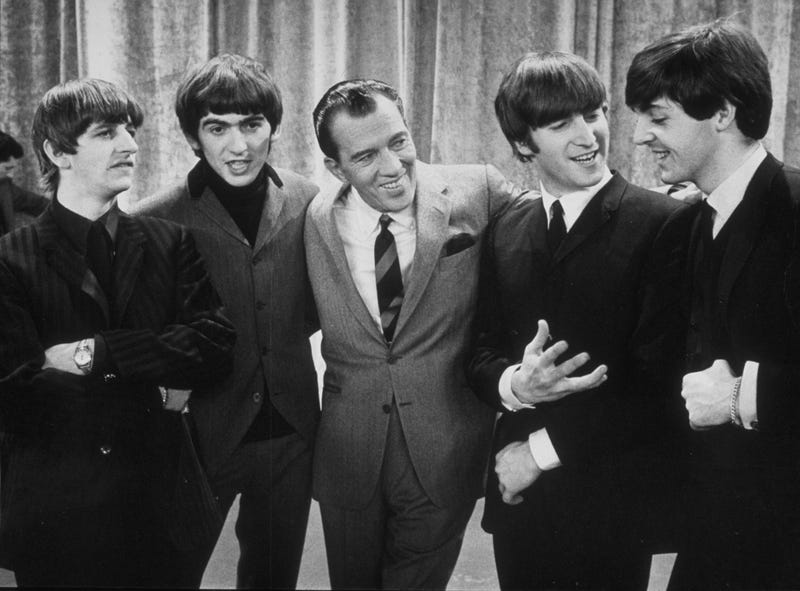
On this day, February 9, 1964, a young generation was forever changed, and the music world was rocked with the arrival of the first troops in the British Invasion of America.
Today is the day The Beatles appeared on American television for the first time. “The Ed Sullivan Show,” was a top-rated show that featured acts ranging from tumblers to puppets to musical artists, and it was known for exposing young musical talent. A new song representing a new sound was the new #1 song in America. That song was “I Want To Hold Your Hand.”
I remember my mom telling us that my very hip grandmother said that we had to watch this new group that would be appearing on “The Ed Sullivan Show.” On the night of February 9, 1964 we all gathered around the television set in our suburban den and watched The Beatles for the first time.
Immediately I knew - The Beatles were different! Their sound was different, and their hairstyles and clothes were equally as unique to the young audience watching. Their hair was long - relative to the times - and the four band members wore suits that were sleeker and looked foreign compared to the suits Americans were wearing. When the first chords and the vocals of their first song hit simultaneously - it marked a new beginning for the Boomer generation, aka, the anti-establishment rock generation that became the target of condemnation of the establishment.
“All My Loving” was the first song The Beatles played that night, and there was no doubt that a new music trend was on the verge of exploding. The screaming of hundreds of girls in the audience and the visuals of some overcome with emotion - some were crying - let us all know that something new and very different was coming.
The Beatles appearance on “The Ed Sullivan Show” on this day in 1964 may be seen as the moment a young generation rebelled against their parents’ generation, but the seeds for the youth rebellion were actually planted 3 months earlier on November 22, 1963. That was the day President John F. Kennedy was assassinated, and a young generation was watching.
At a time of the Kennedy assassination - parents were not prone to discuss serious news matters with their children - so an impressionable, young generation, sat alone and processed the leader of the establishment being murdered while in a parade. I believe that was the moment that a young generation felt such deep insecurity about the world around them that they were receptive to anything that would distinguish them from their parents’ generation.
Three months after the Kennedy assassination, The Beatles represented a flashpoint in time when a young generation adopted a new and rebellious identity.
And The Beatles were the lead band of an invasion of British bands that defined a young generation. That generation is today’s establishment. Interestingly, today’s establishment has the same condemnation for new, young generations using the same attitude to judge the music, the styles, and the behavior of current artists that are helping those new generations define themselves beyond the shadow of the establishment.
What is most fascinating about The Beatles is the appeal their music has to younger generations that did not grow up with the Fab Four as a rite of passage. The annual Beatles Festival in New Orleans attracts a broad range of demographics from Boomers to Gen Xers to Millennials to Zoomers, and they are all in the audience singing every word of every classic Beatles song that’s played.
The Beatles were as lucky as they were talented. The definition of “luck” is when talent meets opportunity, and the talent of The Beatles hit America at the right time. My dad was into the big band sounds, and he thought the Beatles were just a passing fade and that I would grow out of that stage and adopt the music he thought was real music. Well, that didn’t happen. The rest is pop culture history!
But every establishment generation has the ability to misjudge the trends of their kids’ generation. In the early 90s when the grunge sounds and fashions were reaching mainstream youth, I heard my generation - the Boomes - say the same things about the grunge artists that my parents said about The Beatles.

